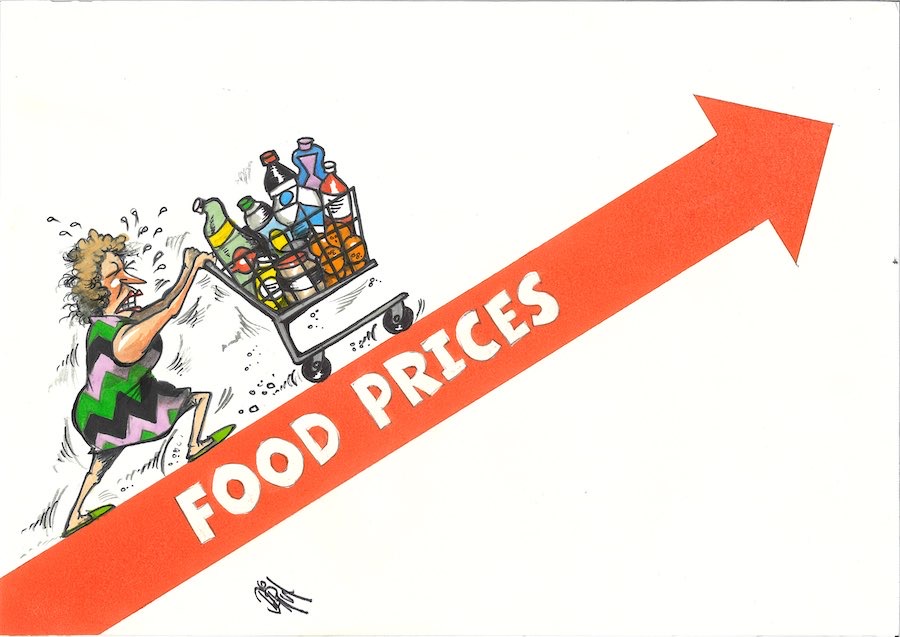Michelle Grattan, University of Canberra
Budget day is high risk for all the political players.
Think of it this way. Fast forward two months. By early July, will we look back on the Coalition’s second budget as one that consolidated Tony Abbott’s position, or undermined it?
Where will it have left the currently weak man of the team, Joe Hockey, and the rising star Scott Morrison?
And will Bill Shorten have got another free kick, or found that he has become the one on the defensive?
Even new Greens leader Richard Di Natale has something significant at stake. It’s his first test. How he and his party respond to the budget will send some important messages about the way the minor party can be expected to operate under new management.
Budget eve had a touch of madness, as well as some serious discussion.
Morrison, in his endless round of interviews, felt the need to defend Hockey, seen to have been sidelined, by comparing him to rugby league player Greg Bird.
When shock jock Ray Hadley pointed out that “given Bird’s currently suspended for eight weeks that’s a really poor analogy”, Morrison pressed on: “Probably is, but anyway, not to worry, he’s the guy who will be scoring the points.”
Later Morrison attempted a clean up of his faux pas via twitter. “Everyone can calm down. I meant Jack Bird [another rugby leaguer], not Greg Bird. I let Ray know straight after the interview.” It was a bit of a stretch.
Hockey was left to be annoyed at the comparison or rather pleased to see the man of the moment slip up.
It was a touch of quickly-forgotten nonsense except for those involved.
The serious side of budget eve was the reaction to the government’s Mothers’ Day A$3.5 billion child care package, and its announcement, also on Sunday, that mothers would not be able to “double dip” into both the government maternity leave scheme and an employer one.
Two problems emerged on child care. There was some criticism, including from a couple of Nationals, that it was too focused on trying to push people into work. The Nationals worried about those families on single incomes. Other critics point out that with unemployment over 6%, getting a job is difficult for many.
The other problem arose from the government’s linking delivery of the child care plan to the Senate passing the 2014 assault on the family tax benefits scheme, in particular the proposal that families whose youngest child was aged six or over would no longer be entitled to family tax benefit part B.
Abbott on Monday stuck hard to the point that there will have to be savings to offset the new child care spending, but he flagged a willingness to negotiate on what the savings are.
Somehow, the government has to strike a deal with the Senate because it desperately needs this child care package, pitched at middle Australia, to pass.
The measure against “double dipping” brought some criticism from business and dramatically highlighted how Abbott has gone from championing a ridiculously generous PPL plan that he was forced to drop to using parental leave as a savings source.
Nearly half of the eligible women will be worse off under the government’s changes, which save nearly $1 billion over the budget period.
Figures Hockey issued show that more than 50% of eligible mothers – about 90,000 a year – will be unaffected, receiving the full government PPL entitlement because they have no employer scheme.
About 27% – 45,000 – will have a partial PPL entitlement, as they have some entitlement from an employer scheme but less than the maximum rate of the government scheme.
About 20% – some 34,000 – will only receive their employer-provided entitlements if this exceeds the PPL maximum rate.
Those who have been more likely to be able to have double benefits are in higher income jobs.
Years ago governments usually tried to keep budget measures under wraps. When stories came out they were genuine ‘leaks’.
Now governments ‘drop’ measures beforehand. This year the government has also announced major initiatives notably on pensions and child care.
The 2014 budget had both too many measures and too many shocks. This year’s pre-announcements have given the public, and especially stakeholders and the Senate crossbenchers (already consulted ahead of the announcements), plenty of time to absorb detail.
While this has teased out some criticism (on the pension assets test, probably less than the government anticipated) it was a sensible strategy. It makes it easier for the government to manage budget night and the immediate aftermath.
One area that hasn’t been much talked about in the budget run up is youth unemployment.
In its attempt to tick as many boxes as possible, the budget is said to contain an initiative to assist vulnerable young people into jobs. In this context, a test of how far the government has changed will be what it does with last year’s harsh budget measure – in limbo because of Senate opposition – requiring unemployed people under 30 to have up to a six-month wait for the dole.
Listen to Michelle’s interview with Health Minister Sussan Ley here, or on iTunes.
![]()
Michelle Grattan is Professorial Fellow at University of Canberra.
This article was originally published on The Conversation.
Read the original article.
Who can be trusted?
In a world of spin and confusion, there’s never been a more important time to support independent journalism in Canberra.
If you trust our work online and want to enforce the power of independent voices, I invite you to make a small contribution.
Every dollar of support is invested back into our journalism to help keep citynews.com.au strong and free.
Thank you,
Ian Meikle, editor





Leave a Reply